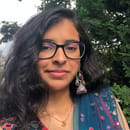I have always loved reading books, especially physical books; there is just something magical about having a book in your hands, the weight of it, the feel of the paper on your fingertips, just something truly special. However, I love the planet I live on just as much as the books I read, so I think it is important for me to understand and create a balance between these two loves of mine. As I have gotten older and more educated on the impact humans have on Earth, I have embarked on a journey to continue the love and joy I get from reading while minimizing my negative impact on the planet. Below I have listed some tips on how to be a more sustainable reader that I am going to try, and hopefully, you will too.
- Ebooks/Audiobooks – One alternative to physical books is getting an e-reader as a way to lessen the impact of paper books. It is important to keep in mind that an e-reader should only be bought if the person is a complete bookworm because if you are an occasional reader, then the e-reader is not as beneficial. E-readers also have a carbon footprint, and if they are not used to their full purpose and capacity, then buying and having one is not helping the planet the way we want to.
- Borrowing books – There is a reason why libraries are such an integral part of communities: they allow people to access various types of literature without having to buy it. The purpose of libraries is so that different people all have the chance to read the same books without each of them buying a copy. Many of us have a book bestie with whom we love talking about books, so borrowing books from each other is another way for us to be environmentally friendly.
- Buy second-hand books – Buying second-hand books means that fewer new books are being purchased, hence being published, which reduces the carbon footprint of book publishing. Reused books are a cheaper alternative to having physical books in your hands as well as being easier on the Earth. When shopping for books, it also is helpful to look for and buy books that have an FSC logo on them. The FSC logo stands for Forest Stewardship Council, and books that have this logo mean that most of the book is made from sustainably sourced paper from FSC-managed eco-friendly forests. Buying second-hand books can help the planet more than we expect it to if everyone tries to be more mindful of their purchases.
- Host a Book Swap – This is an inventive way for people to be more environmentally conscious while also allowing for a better book community to present. People love sharing books that they love with other people so instead of having a person buy a new copy of the book they can swap books. While swapping books may not work for everyone, it is a possible alternative that allows readers to continue finding, reading, and enjoying new books without increasing the Earth’s carbon footprint.
- Redistributing/Upcycling Your Books – There are times when the books you have in your library are piling up and many of them are no longer of any interest to either you, your friends, or your family. To get rid of books that are still relevant and in good condition, you can donate them to the local library and local schools, or even create a little free library for people to visit. Upcycling books that are damaged or out-of-date is a great way of giving these same books a new life by turning them into craft supplies, decorations, covers, and jewelry. By disposing of books in a more aware and mindful manner it can help people be more environmentally friendly.
Note: The tips mentioned above were garnered from my own research and ability to recognize what can be helpful to our planet. To know more about being a sustainable reader and how best to help the planet please do your own research from expert sources.
These are suggestions on how everyone can do their part in helping the planet because we want our kids to be able to read for years to come just like we were able to. Reading is a privilege just as living on this beautiful planet is, so I hope I can do my part to ensure that we maintain and cherish this privilege and I hope you all do too.


